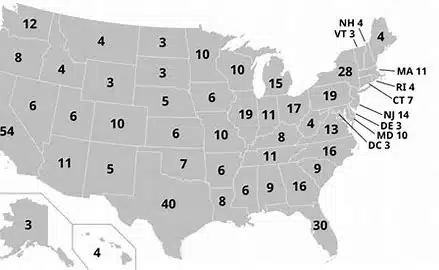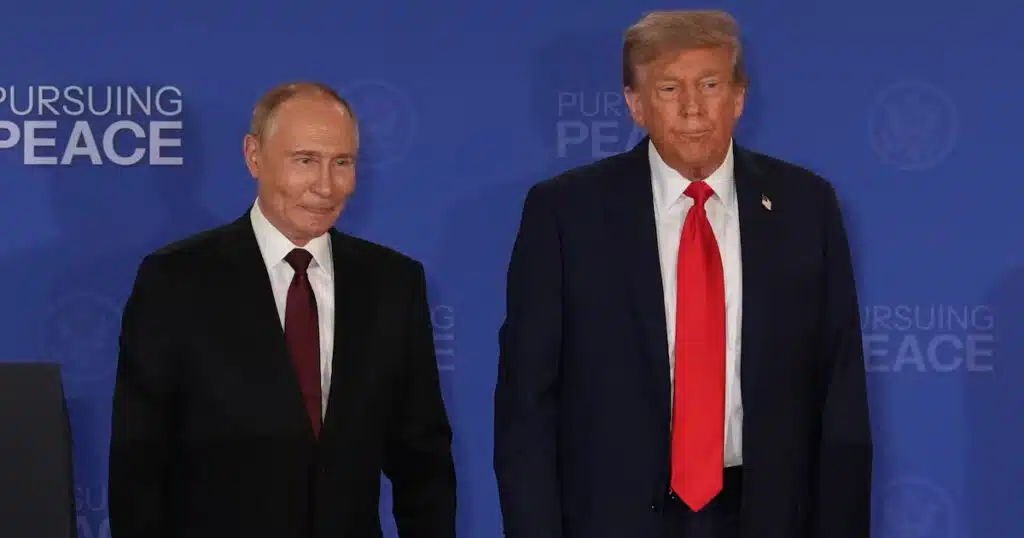
Don’t Fear the Elimination of the Electoral College
After Donald Trump won the recent presidential election, discussion about the Electoral College has been relatively muted. However, if he had lost the popular vote similar to 2016, you can bet Democrats would be crying foul and demanding an end to the Electoral College. Interestingly, unlike many of my fellow America First conservatives, I support a move to a popular vote system.
The traditional conservative argument in favor of maintaining this somewhat bizarre and antiquated method of deciding who will be president is based on several questionable principles.
* The U.S. is a constitutional republic, not a democracy. Okay, so what? Does anyone think the average American citizen cares about that distinction? You can argue that civics should be a mandatory curriculum in high school, and I wouldn’t disagree, but that isn’t going to happen. For many voters, an election like 2016, where the Electoral College and the popular vote were not in tandem, creates suspicion that the election was not reflective of the will of the people. Anyway, the House and Senate are the foundations of the representative republic, not the presidency.
* The Electoral College prevents big states with large population centers from choosing the president every election. No matter what system is employed to choose a president, big states will always dominate for obvious reasons. Would it really matter if a candidate focused on states with large population centers instead of a small number of swing states? When was the last time a presidential candidate held a public rally in Los Angeles or Chicago? Is it fair that Trump and Harris spent so much time in Pennsylvania but ignored Florida and California? The Electoral College doesn’t solve the issue of targeted, narrow campaigns, it just shifts the battleground to a smaller and different group of states.
* The Electoral College protects the rights of small states. How exactly? If the Electoral College is set up properly, it should accurately reflect the will of the people of the entire United States. Are we really advancing the argument that the vote of a person in Montana carries more weight than the vote of a citizen of California? The true protection of small states comes from the Senate, where every state has identical and equal representation, regardless of size. This is a massive equalizer in ensuring the interests of smaller states are not trampled by larger states, and it is the only protection that is needed to guarantee the rights of states with smaller populations are protected.
The Truth About the Electoral College
During the Constitutional Convention of 1787, the issue of how to select a president was contentious, and the debate was lengthy. There were several competing plans, including selection by Congress, by the state legislatures, by the governors of the states, by a special group of members of Congress, or by direct popular election.
Ultimately, the attendees decided on an idyllic system that was independent of voters. The thinking was that the electors would be chosen based on their thoughtfulness, intellect, and lack of partisanship. Over time, as the country’s ideologies fractured and political parties sprang up, the original system proved untenable. In 1803, the 12th amendment was passed, and the Electoral College was revised and continued to evolve until it became the system we know today.
Lost in the discussion of the relevance of the Electoral College is the extraordinary difference in technology in 2024 compared to the 18th and 19th centuries. Tallying an accurate national popular vote during those elections would have been practically impossible. Even with the invention of the telegraph, election cheating would have easy to do and almost impossible to expose.
However, those barriers have long since been overcome. Election results are almost instantaneous (except California, Arizona and a few others) and in the vast majority of states, the results are known the night of the election. There is no informational or technological barrier that should stand in the way of converting presidential elections to the popular vote.
The unfairness of the Electoral college is evident when you look at the distribution of electors. That number is fixed at 538, yet California, with 66 times the population of Wyoming, only has 18 times the number of electors (54 vs 3).
By any reasonable measure, how is that fair? Essentially, it means the vote of a Wyomingite is 48 times more important than the vote of a Californian.
Why Republicans Fear the Popular Vote
Republicans fear disbanding the Electoral College for two reasons. One is legitimate, and one is not.
In reality, despite Trump, it’s traditionally more difficult for Republicans to win the national popular vote, so they believe championing the Electoral College ensures Republican presidential candidates will win more elections. Digging down past the virtue signaling, it’s really as simple as that.
Since 2004, the Republican candidate lost the popular vote in four out of five elections because of the concentration of Democrats in large, urban areas. While the Electoral College and popular vote usually arrive at the same result, they diverged in 2016 to the benefit of the Republican. In fact, there are five instances of a presidential candidate winning the Electoral College and losing the popular vote in U.S. history.
The second reason Republicans resist is far more valid. As it stands, the impact of California, for example, is limited to 10% of the total election result. Since California is a deep blue state, it wouldn’t matter if a million less or more Democrats voted in 2024, Harris still would have won the state’s 54 electors.
However, if the presidency was decided by the popular vote, the number of people who voted would matter a whole lot.
California has moved increasingly to an all-mail-in voting system that does not require any form of ID with the ballot. Signature verification is an inexact science, and the training for those assigned to the task is woeful. Each ballot is scrutinized for 2-5 seconds. That is the only safeguard California employs to ensure mail in ballots are legitimate.
Worse, California is a “self-attestation” state, which means anyone registering to vote is not required to provide identification to prove they are a citizen. California doesn’t see anything wrong with this system and has no intention of changing.
In a popular vote national election scenario, could you even imagine the record number of votes that would be recorded in California? The cheating would be epic, but woke leftists in government would vigorously fight any election oversight and label anyone questioning the results as an election denier.
Currently, only 15 states require some form of ID to vote in person, and only eight states require meaningful ID for mail-in ballots.
Since the 2020 election confirmed the tendency of woke leftist Democrats to cheat in presidential elections whenever they can get away with it, there is absolutely no way Republicans could ever agree to presidential elections based on the popular vote until all avenues for election rigging were closed.
So, in all likelihood, the discussion of changing to a popular vote system is moot, but if Democrats ever raise the issue in a meaningful way, election integrity is the Republican bargaining chip in the discussion. Require proof of citizenship when registering, a copy of a photo ID on mail in ballots, and photo ID at the voting centers, and we’ll talk.
The Benefits of Popular Vote Elections
The primary weakness of the Republican party is an inexplicable aversion to change. Reluctance to consider a popular vote system is irrational, and assuming the election process is secure, there is no reason to fear it.
* Popular vote elections would energize millions of voters in Democrat states. How many Republicans stay home on election day in Illinois, New York and California because they know their vote is meaningless? Growing up in Illinois, I personally know a number of people who gave up on voting for that very reason. In a popular vote scenario, these people would feel far more compelled to participate, which might also positively affect down ballot slates.
* Popular vote would result in national campaigns. Campaign resources are limited, so candidates will cluster to a handful of states anyway, but instead of six or seven battleground states, the campaigns would become far more national in scope. Yes, they would focus on the states with the highest populations, but they might also spend time in areas where voter identification with the opposition party was soft.
* Popular vote ends the debate about the Electoral College. Dismantling the Electoral College ends the fairness debate once and for all. An arbitrary, confusing system meant for a different era would be replaced by a modern, high-tech friendly method for choosing the winner.
* Republicans will win more elections. Trump in 2024, George Bush in 2004 and Ronald Reagan in 1980 and 1988 proved Republicans can win the popular vote, but campaigns are always geared to win the Electoral College. A campaign would look completely different if the goal was to win the popular vote. I have no doubt good candidates with winning ideas would do as well or better than a comparable Electoral College election.
Don’t Fear the Future
Republicans must adapt with the times. Despite the lull, the popular vote movement is growing, and we must be prepared to embrace the future.



